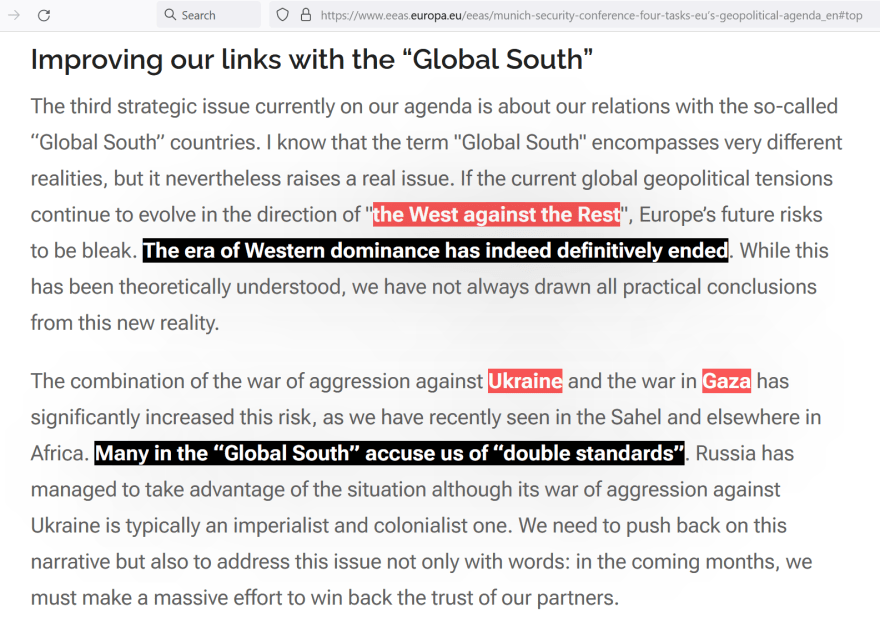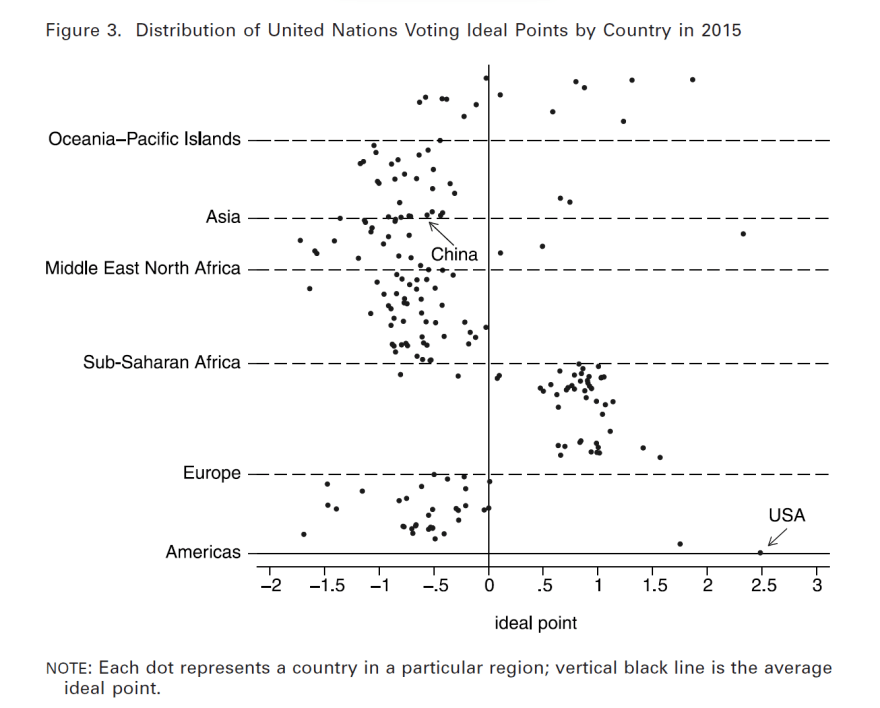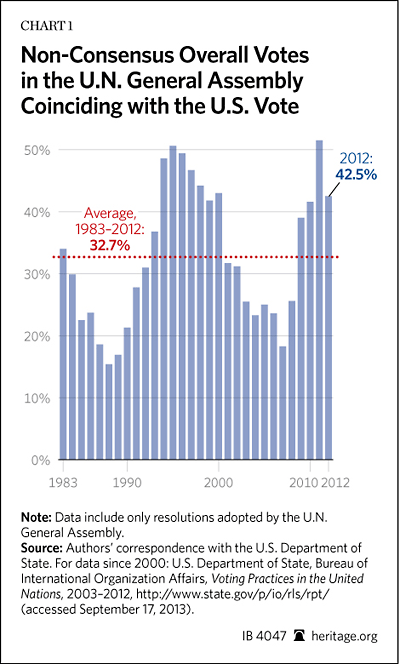‘Western dominance has ended’, EU foreign-policy chief admits, warning of ‘West against the Rest’ geopolitics

Europe’s top diplomat has acknowledged that the “era of Western dominance has indeed definitively ended”.
Josep Borrell, the European Union’s high representative for foreign affairs, wrote this in a blog post on the official website of the EU’s diplomatic service on February 25.
“If the current global geopolitical tensions continue to evolve in the direction of ‘the West against the Rest’, Europe’s future risks to be bleak”, he warned.
The wars in Ukraine and Gaza, along with the anti-colonial uprisings in Africa’s Sahel region, have “significantly increased this risk” of Europe becoming geopolitically irrelevant, Borrell said, lamenting that “Russia has managed to take advantage of the situation”.
The European foreign-policy chief revealed that “improving our relations with the ‘Global South’” is one of ” the four main tasks on EU’s geopolitical agenda”.
“Many in the ‘Global South’ accuse us of ‘double standards’”, he confessed.

Borrell is known for sporadically making frank comments, admitting inconvenient truths that most European diplomats leave unsaid.
In 2022, the EU foreign-policy chief confessed, “Our prosperity was based on China and Russia – energy and market”, with “cheap energy coming from Russia” and “access to the big China market” as the cornerstone of the European economy.
However, Borrell’s insistence that Europe must not divide the world into the “West against the Rest” was contradicted by his insistence in the same February 2024 article that the EU must expand its “cooperation with key partners, and in particular the US”.
The top European diplomat wrote that “recent months have reminded us how important NATO remains to our collective defence”, calling to strengthen the US-led military bloc.
In 2023, the influential think tank the European Council on Foreign Relations published a white paper titled “The art of vassalisation”. It warned of “Europe becoming an American vassal”, noting how the war in Ukraine had “revealed Europeans’ profound dependence on the US”.
The EU’s foreign-policy chief does recognize that it would be an error to pit “the West against the Rest”, yet he is simultaneously calling for deepening the trans-Atlantic alliance between the US and Europe, which only exacerbates that geopolitical division.
The West vs. the rest at the UN
On the global stage, Europe frequently joins the United States in violating the will of the international community.
At the United Nations, the US and Europe often vote together, while the vast majority of member states, which are located in the Global South, vote against them.

Source: Alastair Iain Johnston, “China in a World of Orders: Rethinking Compliance and Challenge in Beijing’s International Relations”, International Security (2019)
The US only voted with the majority of the world at the UN General Assembly 32.7% of the time from 1983 to 2012.
In 1988, just 15.4% of overall UNGA votes coincided with the US vote.
Europe is the only region of the world that consistently votes with the US.

In November 2023, the West voted against the vast majority of the world in UN General Assembly resolutions concerning democracy, human rights, and cultural diversity, mercenaries and unilateral coercive measures (sanctions).
In April 2023, the West once again voted as a bloc against the other countries on the UN Human Rights Council, defending unilateral sanctions, which violate international law.
In December 2022, the West voted against the rest of the planet in UN General Assembly votes calling for a new international economic order.






